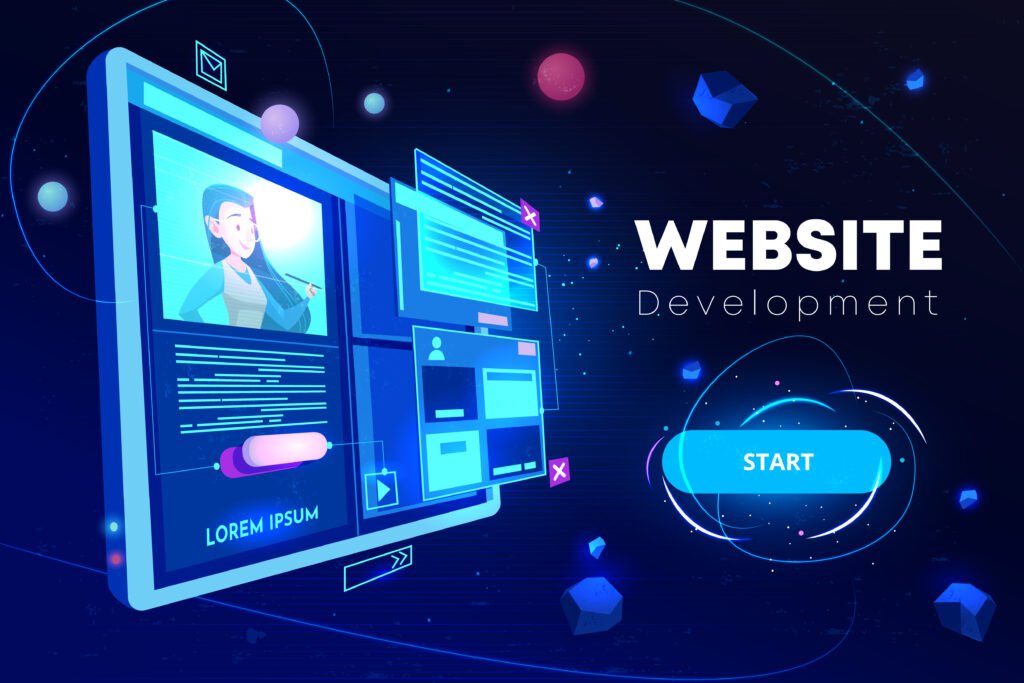Welcome to the exciting world of website development! Whether you’re a budding entrepreneur eager to establish your brand online, a creative freelancer seeking to showcase your portfolio, or simply someone with a unique voice yearning to express yourself digitally, the act of building your own website opens up a world of possibilities. Don’t worry, this comprehensive guide will be your trusty companion on your web-building journey!
Step 1: Understanding the Website Landscape:
Before delving into code, let’s take a moment to familiarize ourselves with the fundamental building blocks:
-
Front-End: This is the visual part of your website, what users see and interact with. Think of it as the storefront window! HTML, CSS, and JavaScript are the core languages here.
-
Back-End: This is the engine behind the scenes, handling data processing and server-side logic. Languages like Python, PHP, and Ruby on Rails power this part.
-
Content Management System (CMS): A CMS like WordPress or Drupal simplifies website creation and management, letting you edit content without coding. Think of it as a user-friendly control panel for your website.

Website Development
Step 2: Choosing Your Tools:
Now, let’s pick the right tools for the job:
- Text Editor: A basic text editor like Notepad++ or Sublime Text is perfect for writing your code.
- Web Development Frameworks: These pre-built libraries like React or Vue.js accelerate development and add powerful features.
- Online Resources: Countless online tutorials, courses, and communities like FreeCodeCamp and W3Schools are your learning allies.
Step 3: Building Your Website:
With your tools ready, it’s time to get creative!
- Start with the Fundamentals: Master HTML, CSS, and basic JavaScript to understand how web pages are structured and styled.
- Embrace Practice: Build small projects like static landing pages or portfolios to hone your skills and gain confidence.
- Don’t Fear Mistakes: Learning involves experimentation! Embrace trial and error as opportunities to grow.
Step 4: Trends and Tips for 2024:
- Mobile-First Approach: Ensure your website looks and functions flawlessly on all devices, especially smartphones.
- Focus on User Experience (UX): Make your website intuitive, easy to navigate, and visually appealing.
- Embrace Accessibility: Build an inclusive website that everyone, regardless of ability, can access and enjoy.
- Security Matters: Implement strong security measures to protect your website and user data.

Step 5: Launching and Beyond:
Congratulations! You’ve built your website! Now it’s time to launch it to the world:
- Choose a Web Hosting Provider: This is where your website files reside and are accessible online.
- Register a Domain Name: This is your website’s unique address on the internet.
- Promote Your Website: Utilize social media, search engine optimization (SEO), and online marketing to attract visitors.
Remember: Website development is a journey, not a destination. Keep learning, experimenting, and evolving your skills. With dedication and passion, you can build stunning websites that not only capture attention but also leave a lasting impact.

